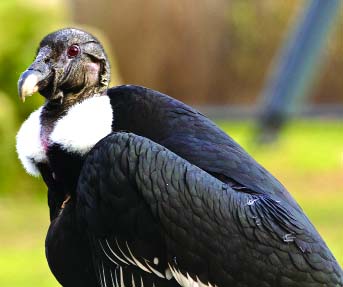
UNB, Dhaka :The government’s initiative to save white-rumped vultures in the country has started yielding positive results, raising a hope that there will be increased population of the globally-endangered species in Bangladesh.”There were only 14 vulture families (pairs) at Rema-Kalenga Wildlife Sanctuary in Habiganj when the conservation initiative began in 2014, but its number has now increased to 32 families in early this year,” said IUCN vulture investigator ABM Sarowar Alam who is involved in vulture conservation in Bangladesh.The breeding period of vulture starts from November to April during the winter. The vulture conservation team has already spotted some 15 nests of vulture at Rema-Kalenga forest where they are set to lay eggs.”As we’ve already spotted 15 nests at the beginning of breeding period, we hope we’ll be able to find more vulture nests this year,” said Sarowar. He further informed that 12 vulture nests have already been found in the Sundarbans this year against seven last year.Saving Asia’s critically-endangered vultures from extinction, IUCN Bangladesh in collaboration with Bangladesh Forest Department has taken a project on ‘White-rumped Vulture conservation in Bangladesh:Establishment of toxic drug free Vulture Safe Zones (VSZ) and Monitoring the Population trend’. The two-year programme formally began in March 2014.Under the project, two Vulture Safe Zones (VSZs) have already been established in the areas which are free from toxic drugs. The use of toxic veterinary drugs like Diclofenac and ketoprofen causes death to vultures.During a visit to Rema-Kalenga forest under a VSZ in September this year, this correspondent found a couple of vultures sitting on the top branch of a nesting tree in the forest. More vultures were supposed to be found in deep forest, a hard-to-reach area.Akbar Hossain Jito, president of Rema-Kalenga Forest Co-Management Committee, said community’s involvement in forest management helps increase vulture population in the forest. Last year, a vulture feeding station was set up at Rema-Kalenga Wildlife Sanctuary in Habiganj under the White-rumped Vulture Conservation Project for the first time in Bangladesh, aiming to protect the globally-endangered white-rumped vulture.”Establishment of a community-based vulture feeding station is a unique move in the country to protect vultures. Another vulture feeding station has been set up at Rema-Kalenga under the project this year,” Sarowar Alam told UNB on Friday.Six vulture conservation teams, involving 72 people from local community, have been working in the area on vulture conservation. When cattle die, the team members go to the cattle owners to know whether they used toxic medicine, which is harmful to vultures, on cattle and talk to veterinary physicians. If they find the dead cattle are safe for vulture, they dump that at the feeding station.One cattle was dumped at a feeding station of Rema-Kalenga Wildlife Sanctuary on Thursday, Sarowar said.He said if no cattle dies during the breeding period of vultures from November to April this year, some 10-15 slaughtered cows will be kept at the stations during the period to supplement their feeding to increase vulture population.The government has declared two safe zones for vultures where ‘zero tolerance’ is shown towards using ‘diclofenac’ and other harmful veterinary drugs under article 20 (1) of Wildlife (Conservation and Security) Act 2012. The designated areas are Sylhet, parts of Dhaka and Chittagong covering an area of 19,663.18 sq km as Vulture Safe Zone-1, and Khulna, Barisal, and parts of Dhaka covering an area of 27,717.26 sq km as Vulture Safe Zone-2 (VSZ).

